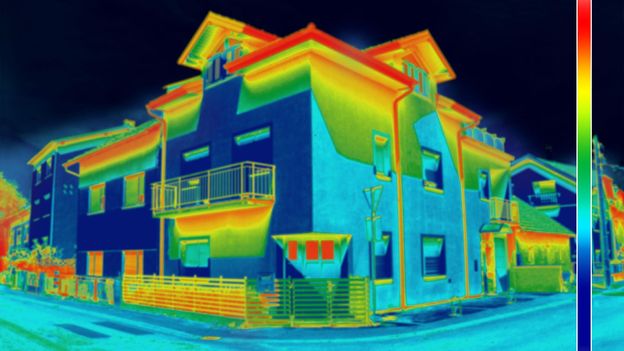Are your heating and cooling bills higher than expected?
Don’t despair. There are several ways to lower those bills, especially if you know where the heating or cooling in your house is going. By identifying the most likely culprits in your home where heating or cooling escape, you can take steps to prevent that loss and start saving money.
Every house has leaks. If heating or cooling escapes from your house your AC and furnace have to work harder to maintain the temperature. When you minimize the leaks, you save money while simultaneously extending the life of your HVAC system. You might also like the idea of minimizing your carbon footprint on Mother Earth.
Where is heating and cooling escaping your home?
The roof of your home can be a major source of air loss.
Heat loss can be worse in the winter because warm air rises and will escape through the roof if there isn’t adequate insulation. Also, if the duct system in your attic isn’t properly sealed, air can leak through the cracks and holes.
What should you do to prevent heat loss through the roof? Start by making sure you have good insulation. Adding the proper amount of quality insulation in your attic can be one of the best ways to prevent energy loss. Check for holes or cracks in the attic leading to the outside that might need to be caulked. Also, check the floor in the attic to see if any light is coming through from the rooms below. When there is a hole, there is a potential loss of heat and air conditioning.
When the walls in your home are poorly insulated, this can be a source of heat and AC loss.
If the walls are hollow, insulation can be pumped or blown into them. If the walls are solid, insulation can be added to the exterior or interior of the wall. Be sure to check vents to see if they are properly attached, and also check around doors and windows to see if any cracks need to be caulked.
It is estimated that up to a third of your home’s heat or air conditioning loss will be through the windows and doors.
Single pane windows typically allow heat and cold to pass through. Double pane windows are more efficient, but they can be expensive. There are other ways to prevent air loss in windows including draperies, thick curtains, and window wrapping. For your doors, make sure there is adequate weather stripping. You can also buy door and window insulation kits, or have a professional come to your house to insulate your doors and windows.
Heat and Cold Air can escape from several places in a home.
Outlets and Switches are often overlooked as sources of heat or air conditioning loss.
Sometimes, energy can be lost through outlets, switches, and ceiling fans. You can purchase foam gaskets to help insulate these.
Hot and cold air can escape through the floor.
Energy can escape through your floors, so make sure there is quality insulation underneath and check to see that any cracks are sealed.
Your fireplace can be one the biggest sources of AC loss in your home.
When you aren’t using the fireplace, you should have it sealed up to prevent drafts and air leaks. You can also purchase a chimney balloon that will block airflow through the chimney and save you energy costs.
We hope these tips help keep your costs lower this year. Keep your HVAC system and furnace running smoothly and efficiently with regular annual maintenance. And remember, working in the attic and checking ducts is best completed by a professional. If you don’t know what you are doing, you risk damaging your home or making the leaks worse. We are happy to help. Please contact us to schedule an appointment.




Thank you for these valuable tips on reducing heating and cooling costs. Proper insulation and sealing leaks can significantly enhance energy efficiency and lower bills. Regular HVAC maintenance and professional inspections are crucial for optimal performance. Your guidance on identifying and addressing common air loss sources is much appreciated!
This article highlights key areas where heating and cooling can escape from your home, such as windows, doors, and attics. Ensuring proper insulation and sealing can significantly improve energy efficiency, reduce utility bills, and enhance overall comfort. Great tips for maintaining an energy-efficient home!